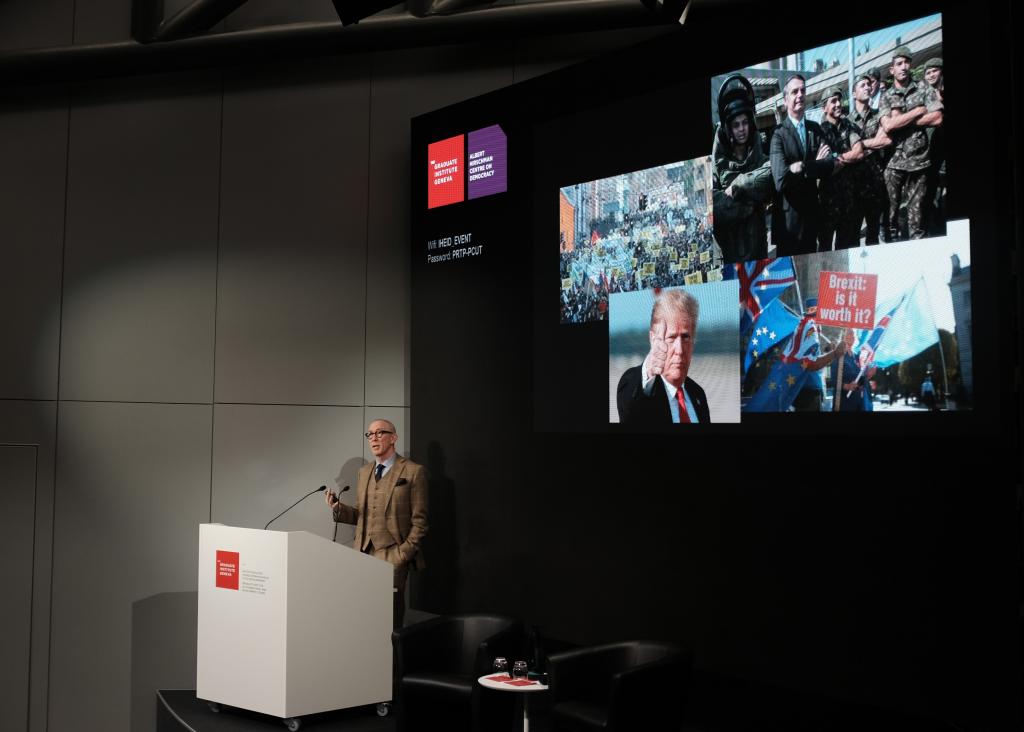Professor Jeremy Adelman, the Henry Charles Lea Professor of History and Director of the Global History Lab at Princeton University and a pre-eminant scholar and biographer of Albert Hirschman, as a Visiting Professor in October. Professor Adelman is the author of Worldly Philosopher: The Odyssey of Albert O. Hirschman (2013), a chronicling Hirschman’s role as of one of the twentieth century’s most original thinkers.During his visit to the Albert Hirschman Centre on Democracy, Professor Adelman had the opportunity to engage with faculty and students. During his public talks and interactions with the faculty and students, Professor Adelman reflected on his deep interest in narratives and explanations of processes that transcend familiar national or local boundaries.
In particular, Professor Adelman gave the keynote lecture of the Centre’s annual conference on “Democracy from and at the margins”. Drawing on the themes of the conference, Professor Adelman provided a global history of democracy in the early 20th century in his lecture entitled “Democracy and the Stranger: Does Global Integration Undermine Democracy?”. Turning to Albert Hirschman in particular—who was committed to “marginal” ways of thinking about “core” theories of democracy and development—Professor Adelman argued that the possibilities of democracy in that period could be understood through the ways in which people imagined their solidarity with strangers. As strangers became marked—by race, class, and other qualifiers—so the possibility of imagining our interdependence with them diminished. This, in turn, led to a decrease in the perceived costs of exiting a system of interdependence and an increase in the perceived value of loyalty to one’s subgroup. The history of our treatment of strangers, Professor Adelman concluded, offers telling lessons for today’s political shifts.



